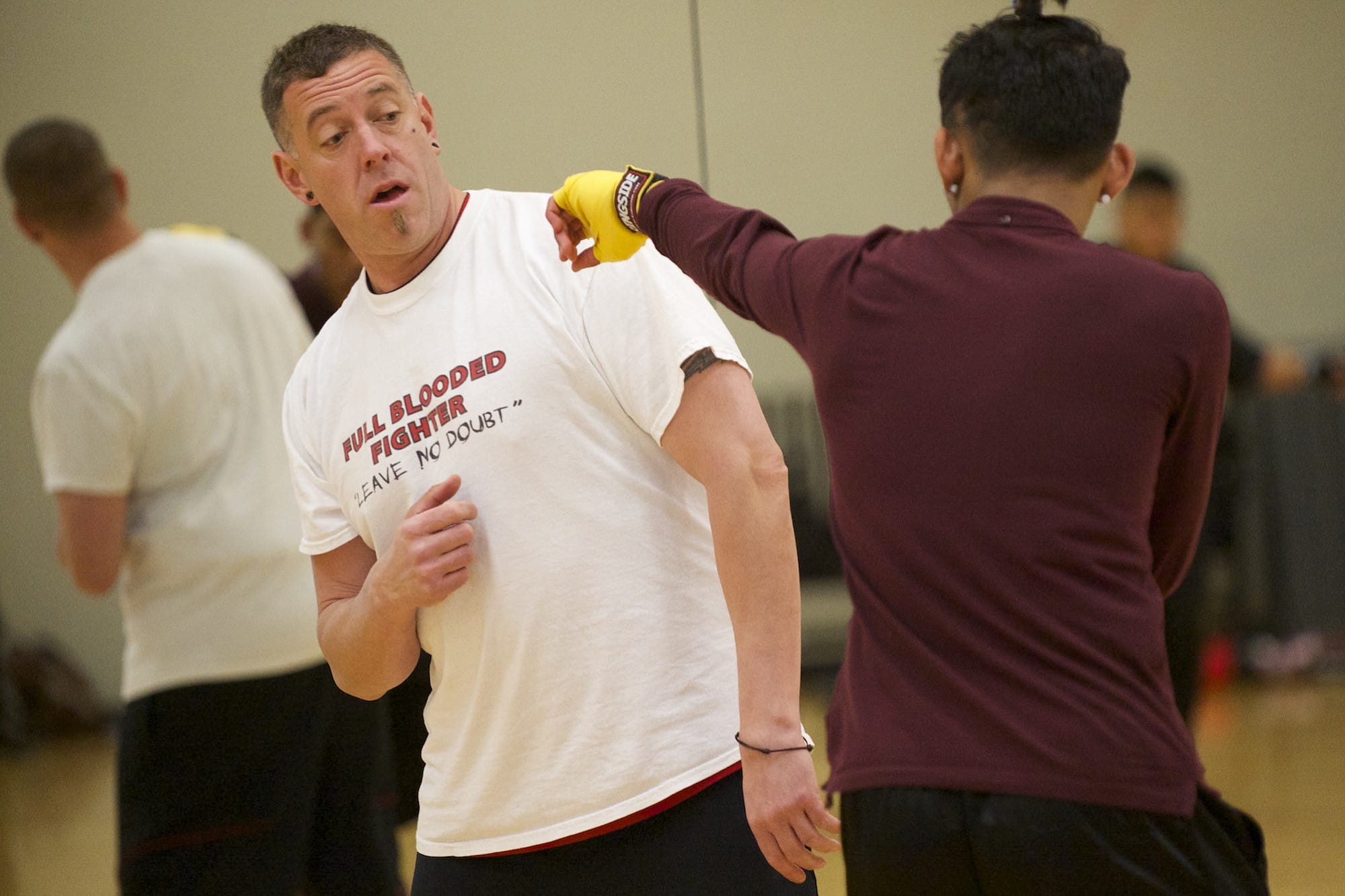When leaders of the Maplewood Neighborhood Association first suggested the organization counter persistent gang issues by donating money to a boxing program for gang-affected youth, some residents were skeptical.
The neighborhood had been raising money for the last few years to support a positive program. To some in the neighborhood, teaching youth involved in gangs how to box didn’t initially seem like the right program.
But after learning more about the program organized by the Safe Communities Task Force, the association unanimously decided last month to donate $350 toward the cause. And they’ve been pleased by the outcome, according to Cynthia Powers, neighborhood association chairwoman.
“We were all real impressed with (the program) and hoping that it really does help change some lives,” Powers said.
The mission of the Safe Communities Task Force — a group supported by more than 100 individuals and organizations — is to reduce violence and gang involvement in Clark County. The task force holds weekly gatherings for gang-affected youth — they may be gang members themselves or have family members are who in gangs.
When Josh Beaman joined the task force as its program coordinator in July, he wanted to create more positive social experiences for the youth. He asked them what type of activities they would be interested in trying, several asked for boxing.
Beaman put the word out at a monthly community meeting, asking for sponsors and instructors. From there, Beaman was introduced to Tony Adams, founder of Mind Fitness Attitude Boxing, a new nonprofit organization dedicated to Clark County youth.
Using existing grant money, the task force formed a partnership with Mind Fitness Attitude Boxing in November. Every Friday afternoon, eight gang-affected youths spend two hours working out with Adams at LA Fitness in Orchards. In addition to the weekly workouts, each youth gets a gym membership.
Adams and his team focus on boxing fundamentals and defensive strategy, as well instilling commitment and leadership in participants, Beaman said.
Beaman had enough money to fund the program for a few months, but then he had to find a way to keep the classes running.
“I really wanted to go out to the community to find partners,” he said.
Beaman mentioned the need for program funding during another community meeting. Powers and her neighborhood association co-chairwoman, Sharyn Gutz, told Beaman the association might be interested in helping.
The Maplewood association had been looking for a way to enhance the neighborhood in some way. The boxing program seemed like an opportunity to do that.
Three years earlier, when neighbors founded the Maplewood association, the neighborhood was plagued with gang issues — graffiti, fights, even a shooting, Powers said. She heard about the Safe Communities Task Force and started attending meetings.
The task force worked with the association to host a neighborhood barbecue in the park.
“We were trying to get at the root of the problem,” Powers said. “Why is this going on? We don’t want it in the neighborhood.”
Gang activity calmed down for a while, but then, several months ago, the graffiti started reappearing.
About that time, Powers heard about the boxing program, which also essentially serves as a mentoring program for youth impacted by gangs.
The neighborhood association donated $350 — half of the monthly cost to operate the program. The Fourth Plain Village Neighborhood Association donated the other half, Beaman said.
Many of the teens involved in the boxing program come from those two neighborhoods. When the associations made the donations, Beaman told the teens.
“That’s pretty cool,” he said, “to tell the kids that the neighborhoods where they live are paying for this.”
Powers believes the neighborhood association involvement in the program is not only helping the teens but improving the neighborhood. The graffiti — as well as other gang-related problems — has again ceased in the neighborhood.
“I’m thinking that’s had some effect, to see that we all do care about them and want them to have positive things to do,” Powers said.
Beaman has seen positive outcomes from the program as well. Teens of different nationalities, who are affiliated with different gangs, have made the commitment to work together. They support and encourage each other throughout the grueling two-hour workouts. They see each other as brothers, rather than enemies, Beaman said.
“There is a cohesion between the group doing this,” he said. “It lets them see they can be friends with people in different gangs. It’s not all about colors and territory.”
After making the donation, the Maplewood Neighborhood Association challenged its counterparts across the city to meet or beat it. Beaman has scheduled presentations with other neighborhoods and is hoping to find other organizations and businesses willing to contribute toward the program.
Powers hopes to see community-wide backing of the program. The impacts of gang activity are felt far beyond neighborhood borders, she said.
“I just know Safe Communities Task Force is doing wonderful things with these gang members,” Powers said. “I’m hoping the kids see that they have value and they can do things they never thought possible.”




